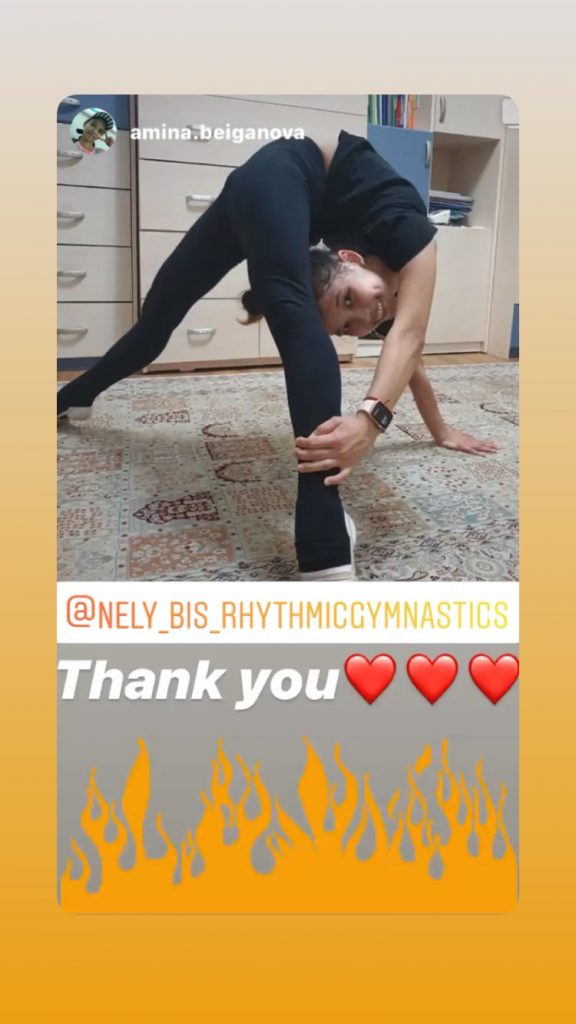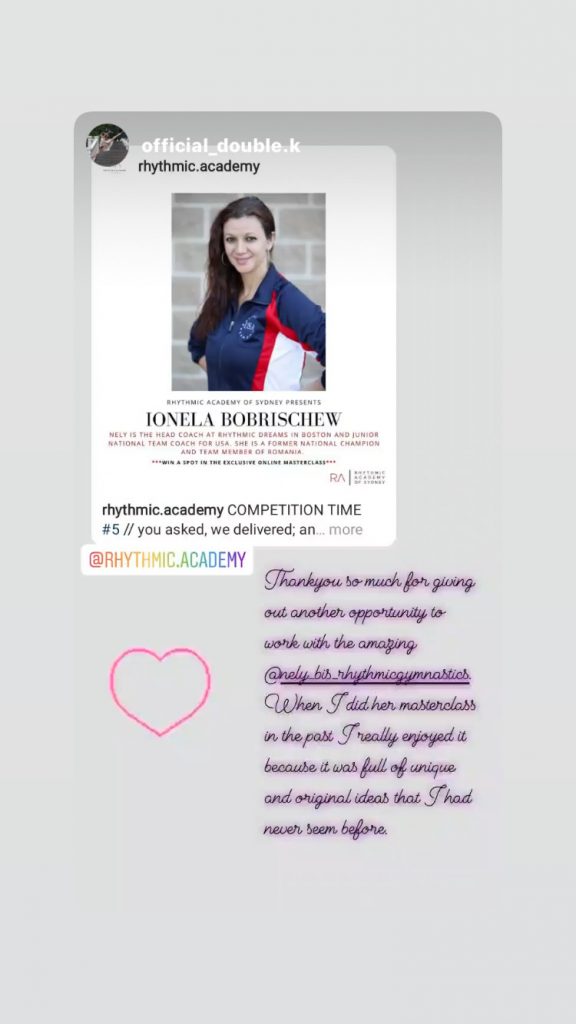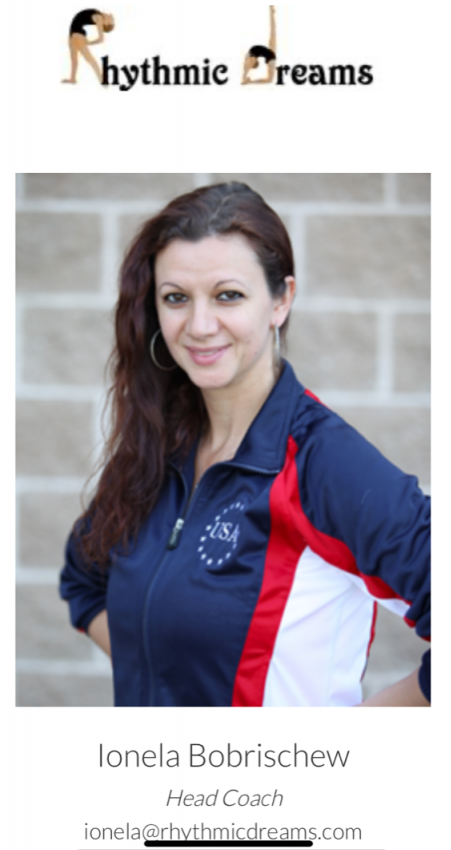By Jasmine Wong
Despite the coronavirus sweeping away its normal competition season, a rhythmic gymnastics team from Needham has found the silver lining through a massive “global experience exchange.”
Since March, gymnasts from 22 countries such as Nigeria, Singapore, and Turkey have participated in master classes by Ionela Bobrischew, Head Coach of Rhythmic Dreams, over Zoom.
Although it is often considered a niche sport in the United States compared to its artistic gymnastics counterpart, rhythmic gymnastics was added to the Olympics in 1984 and has since grown in popularity worldwide.
In rhythmic gymnastics, gymnasts are judged on their artistry and the difficulty and execution of their skills. The sport’s uniqueness lies in the combination of difficult body skills with various apparatus techniques such as tosses, masteries, and handling.
For a sport that relies so heavily on high ceilings and open space, how can one possibly move it online?
Bobrischew saw this challenge as a fantastic learning opportunity for her gymnasts.
“It’s been challenging, but also a great learning experience,” she said. “In the beginning, it seemed really awful and I feared that everyone was going to regress so much, so the way I developed my program was to grow.”
“I never focused on what we are going to lose. I always focused on what we can gain and what we can make better.” Bobrischew said.
Hoping to keep her gymnasts motivated, Bobrischew researched strengthening exercises online and participated in other master classes from coaches around the world.
“It was like an experience exchange. I actually learned some interesting yoga stretches from a coach in Belarus and we adapted that to our training,” said Bobrischew.
And so, the exchange began.
In late March, Bobrischew created a gymnastics challenge for her 62.6k Instagram followers with the prize being a free spot to her class. To her surprise, gymnasts and coaches from Australia, the U.K, Thailand and many other countries reached out and requested to join her classes.
In her first free workshop, more than 100 gymnasts from around the world joined. Additionally, 12 students from different countries have since requested private lessons with Bobrischew, and 20-30 international students have logged into her normal Saturday training.
One of the gyms that has regularly joined her Zoom classes is Rhythm & Groove from Singapore.
“For us, it is quite hard to go all the way to the USA, but online training is very convenient for us so that we can still learn many things,” said Sara Ogiso, Elite Team Coach at Rhythm & Groove.
“Although we have a 12-hour time difference so the timing was a bit of a problem, it is still worth attending. I love it,” she said.


Gemma Gow, a USA Junior National Team member from Rhythmic Dreams, is also enjoying these virtual training sessions.
“[Initially,] I thought they were a little more boring because my favorite part of training is tosses and routines,” Gow said. “But I’d want to continue [having virtual classes] because I think it’s cool to train with people from other countries and other gyms and work on strengthening our skills with them.”
Through these training sessions, Bobrischew and her team have had an unprecedented opportunity to connect with gymnasts around the world through their common love for the sport. Furthermore, by focusing on strength and flexibility, Bobrischew has noted great progress and improvement in her gymnasts.
Nevertheless, Gow and Bobrischew also express their fears of coronavirus having a permanent effect on the sport.
As a gymnast, Gow misses being able to bond with her teammates during practice.
“I think it has been harder [to connect with the team] because in Zoom lessons, nobody talks. Everyone is completely silent and has their microphones off,” she said.
As a coach and former Romanian National Team member herself, Bobrischew has different fears.
“I don’t think that the sport will be as exciting without an audience. It is a performing sport and the adrenaline you get before a competition is from the audience. To perform in a quiet gym is much more difficult than performing in one with an audience,” said Bobrischew.

Ionela Bobrischew, Head Coach at Rhythmic Dreams in Needham, Massachusetts.
Bobrischew has been the Head Coach of Rhythmic Dreams since she began her coaching career in 2002. She began rhythmic gymnastics when she was six years old and was a member of the Romanian National Team, winning the Romanian Junior National Championships in 1991.